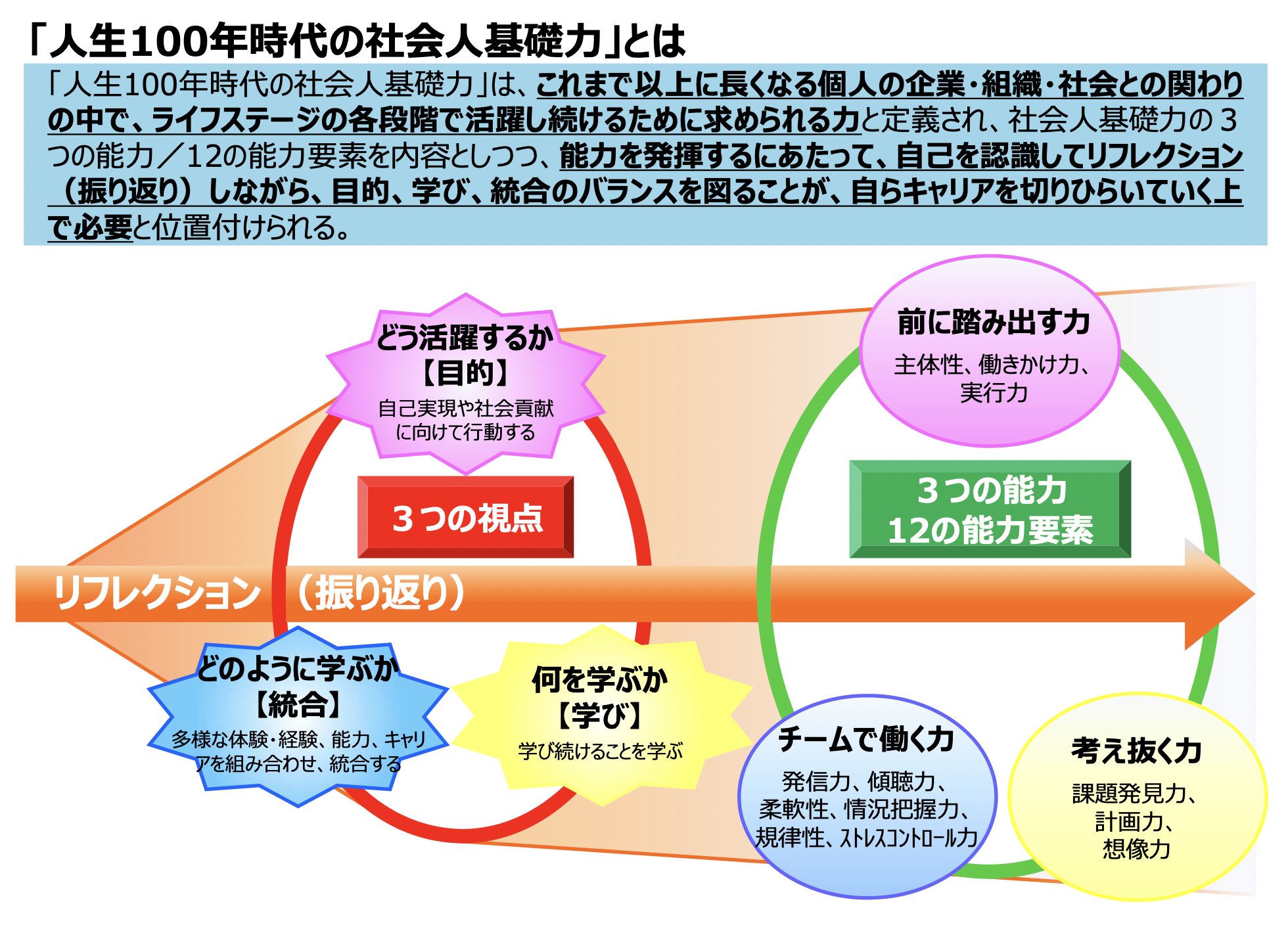Category: Leadership
(12 von 100)
Original title: 採用基準 : 地頭より 論理的思考力より 大切なもの by 伊賀泰代
The author of this book was ahead of HR at McKinsey and Company Japan.
He talked mainly about what type of leadership is needed by the company and future society.
Why: I need to lead myself and my team in the company.
Goal: summarize leadership principles for professionals.
Table of Contents
Action: Set a goal, take a lead, make a call, tell a story.
Japanese: 目標を掲げて、先頭に立つ、決め、伝える。
3 Key Concepts
- Understand working skills and traits : Action, Thinking, Teamwork
- Four tasks: Set a goal, take a lead, make a call, and tell a story.
- Practice leadership : aim to contribute, state your opinion, own your work, facilitate a meeting.
Summary
How to lead at will?
There are 3 skills with 12 factors that make people excel in life. Defined by Japanese Ministry of Economy, Trade and Industry.
- Action: ability to take a step forward persistently even when making mistakes
– Self-direct – Initiative – Execute – - Thinking: ability to have doubts* and think it through
– Define problem – Plan – Creativity – - Teamwork: ability to work together toward goals with diverse people
– Communicative – Listen closely – Adaptable – Grasp situation – Discipline – Control Stress –
*Yes, having doubts is considered here as an ability. There are many people who will be good with anything. They are not particularly useful for society. Oops.

The first misunderstanding about managers is that it is only about management skills. While it consists also of leadership and player’s skill. Lack any of these 3 skills, you cannot be a good manager.
The second misunderstanding is about the difference between manager and coordinator. There are far too many managers in Japan that rather give in to major votes and compromise the achievement.
The third misunderstanding is that manager has to be good at everything. This is a typical Japanese attitude. The author pointed out that this type of Can-Do-It-All individual(平均点高) will not cut it in today’s VUCA world, we need instead a Spike-type leadership. A person who can do something so great, they can bully the way out of it.
この難局を、何で勝負して乗り切るのか?
伊賀泰代
危機の時、ここぞという時に使える自分の勝負球をもて!
Wasu’s translation: With what do you fight this battle? Have your own ultimate move to win the crisis!
The author said there are 4 tasks one must do to become a leader.
- Set a goal : it must be inspiring to your team; achievable and rewarding.
- Take a lead : be a lead runner, set the pace so that followers can run without worrying.
- Make a call : take a responsibility of the situation and decide to move forward.
- Tell a story : people lose their way, you must remind them consistently with inspiring stories.
目標を掲げ、先頭に立って進み、行く道の要所要所で決断を下し、常にメンバーに語り続ける。
伊賀泰代
McKinsey’s way to practice leadership
Act 1:Aim to contribute, ask “How can I be useful? What is my role here?”
Act 2:State your opinion, you are only useful because you own your stand on the topic.
Act 3:Own your work, take responsibility for everything you do.
Act 4:Stand in front of a whiteboard, listen, and facilitate the meeting.
The catch is you must do before you think you can. This is the barrier that separates people away from becoming a leader. When you practice all these acts long enough, you will one day find your own leadership style. How you can best serve/contribute, how you like to make critics, how you manage your own stake on the project, how you make the conversation meaningful.
Goal check: I finally encountered a definition of leadership that makes sense to me.
Wasu’s Review
( 4.5 / 5.0 )
Get this book on Amazon here!

